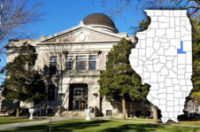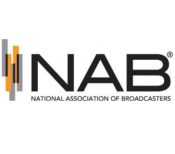 The proof that public notices published in newspapers are more effective than those that are posted on government websites doesn’t get any more direct and conclusive than this.
The proof that public notices published in newspapers are more effective than those that are posted on government websites doesn’t get any more direct and conclusive than this.
Last year, the jail in Ford County, Ill. needed a new generator. The sheriff put a bid-solicitation notice on the county website. It isn’t clear whether the notice got a response, but the sheriff later asked the county’s Public Building Commission to approve a $72,576 bid for a generator. The Commission initially approved the expenditure but rescinded the approval when it learned the sheriff hadn’t published a notice in a local newspaper, as state law requires.
Broadcasters Ask FCC to Move Notices to Their Websites
 Late last year, the Federal Communications Commission (FCC) issued a proposal that would, among other things, eliminate its current rules requiring broadcasters to publish notices in local newspapers when they file various license applications. PNRC filed comments opposing the change.
Late last year, the Federal Communications Commission (FCC) issued a proposal that would, among other things, eliminate its current rules requiring broadcasters to publish notices in local newspapers when they file various license applications. PNRC filed comments opposing the change.
More than nine months later, the agency still hasn’t issued a final ruling on its proposal.
But the National Association of Broadcasters (NAB) isn’t content to wait. In August, the Washington, D.C.-based trade association filed an ex parte notice suggesting an alternative: If the FCC decides not to kill all public notice when its members file license applications — which is NAB’s preference — then the agency should replace newspaper notice with a rule permitting “broadcasters to make brief on-air announcements that refer audiences to websites with additional information.”
Newspaper Notices Activate Opposition to Oil Drilling Proposal
 A privately held oil company with an interest in limiting public input on its requests to change New Mexico’s drilling rules faces opposition from local environmentalists who learned about the company’s latest proposal from notices published in their local papers.
A privately held oil company with an interest in limiting public input on its requests to change New Mexico’s drilling rules faces opposition from local environmentalists who learned about the company’s latest proposal from notices published in their local papers.
Texas-based Hilcorp Energy Co. is petitioning the New Mexico Oil Conservation Commission (OCC) to allow it to double the number of wells it operates in San Juan and Rio Arriba counties. Local activist Mike Eisenfeld learned about the proposal when he read a public notice in the Farmington Daily Times in late August, according to NMPolitics.net. The notice also ran in the Rio Grande Sun on the Friday before Labor Day, and “opponents were left scrambling to organize and formally object to the move within a seven-day deadline,” San Juan County cattle farmer Don Schreiber told the Sante Fe New Mexican.
U.S. Senator: “Paper is not antiquated. It’s reliable.”
 As policymakers have long understood, one of the key elements of a valid public notice is archivability. Notices must be capable of being permanently stored in their original, unaltered form to serve as historical records for the judicial system, scholars and historians. Newspapers do a good job at that. Websites do not.
As policymakers have long understood, one of the key elements of a valid public notice is archivability. Notices must be capable of being permanently stored in their original, unaltered form to serve as historical records for the judicial system, scholars and historians. Newspapers do a good job at that. Websites do not.
Late last year, Sen. James Lankford, R-Okla., introduced a bill that reminds us of the important role historical records still play in sustaining our democracy. Sen. Lankford’s Secure Elections Act, which is designed to harden U.S. defenses against interference in federal elections, was co-sponsored by senators from both parties spanning the ideological spectrum; it appears to have widespread support within the upper chamber.
Newspaper Notice Drives Interest in Used Fire Truck
 Who could possibly want to buy a used fire truck with a rusted frame, leaking fuel tank, no rear seats and broken springs in all four of its tires?
Who could possibly want to buy a used fire truck with a rusted frame, leaking fuel tank, no rear seats and broken springs in all four of its tires?
Much to the surprise of a new fire chief on Cape Cod, there are many potential buyers and they learned about the availability of the truck from a small public notice in the Sandwich (Mass.) Enterprise. The notice sought bids of at least $5,000 for the Sandwich Fire Department’s 2007 Sutphen Fire Engine; it was published 11 days ago in the Enterprise by Fire Chief John J. Burke.
How Newspaper Notice is Supposed to Work
 When the Board of Elections in majority-black Randolph County, Georgia introduced a proposal earlier this month to close seven of the county’s nine polling places, many residents were angry. Some even accused the Board of trying to hide the proposal.
When the Board of Elections in majority-black Randolph County, Georgia introduced a proposal earlier this month to close seven of the county’s nine polling places, many residents were angry. Some even accused the Board of trying to hide the proposal.
The truth is less damning: Even if the Board wanted to hide the plan, it would have been prevented from doing so by Georgia law, which required the county agency to publish two notices about it in a local newspaper. And the notices worked exactly as the law intended, drawing widespread attention to the proposal. In fact, it briefly received national attention, with many characterizing the plan as a Republican effort to suppress the African-American vote before this fall’s election. Nevertheless, when local activists accused the Board of a cover-up, some national media outlets took the bait. For instance, here’s how the Washington Post described the notice process:
Notice Again at Issue in Battle Over Arkansas Hog Farm
 In December 2012, residents of Newton County, Arkansas were shocked to learn that the state’s Department of Environmental Quality (ADEQ) had approved a permit to operate a hog farm on the banks of Big Creek, a tributary on the Buffalo National River. To learn about the permit application they would have had to visit ADEQ’s website, where notice about it had been published for 30 days that summer. The notice was not published in a local newspaper.
In December 2012, residents of Newton County, Arkansas were shocked to learn that the state’s Department of Environmental Quality (ADEQ) had approved a permit to operate a hog farm on the banks of Big Creek, a tributary on the Buffalo National River. To learn about the permit application they would have had to visit ADEQ’s website, where notice about it had been published for 30 days that summer. The notice was not published in a local newspaper.
The agency received no comments about the application. It was approved a week after notice was posted on its website. The process was so secretive that even the Buffalo National River staff and the National Park Service didn’t know about it.
Officials’ Relatives’ Names Erased From Tax Delinquency List
 The names of close relatives of two county commissioners were omitted from a delinquent-tax notice recently published in a weekly paper in Robeson County, North Carolina, according to The Robesonian. The county’s daily newspaper also reports that the names of the same individuals were wrongly excluded from the list the previous year, and that the practice of protecting certain individuals by deleting their names from the tax notices goes back at least two decades, according to a former Tax Office employee.
The names of close relatives of two county commissioners were omitted from a delinquent-tax notice recently published in a weekly paper in Robeson County, North Carolina, according to The Robesonian. The county’s daily newspaper also reports that the names of the same individuals were wrongly excluded from the list the previous year, and that the practice of protecting certain individuals by deleting their names from the tax notices goes back at least two decades, according to a former Tax Office employee.
N.C. Papers File Suit to Block Guilford County Law
 Four newspaper companies publishing in Guilford County filed suit this afternoon alleging that a law passed last year by the General Assembly allowing the county to publish and sell public notices on its own website violates the North Carolina Constitution. The companies are asking the Superior Court of Wake County Superior Court to award money damages and issue a permanent injunction preventing the law from being enforced.
Four newspaper companies publishing in Guilford County filed suit this afternoon alleging that a law passed last year by the General Assembly allowing the county to publish and sell public notices on its own website violates the North Carolina Constitution. The companies are asking the Superior Court of Wake County Superior Court to award money damages and issue a permanent injunction preventing the law from being enforced.
Governor Vetoes Public Notice Bill in Colorado
 Colorado Gov. John Hickenlooper yesterday vetoed a bill that would have substantially reduced a category of newspaper notice in the state beginning in 2022.
Colorado Gov. John Hickenlooper yesterday vetoed a bill that would have substantially reduced a category of newspaper notice in the state beginning in 2022.
Senate Bill 156 would have allowed counties to publish salary reports, financial statements and monthly expense reports on their own websites in lieu of newspapers. The legislation would still have required counties to publish newspaper notices providing a website address for each report.
